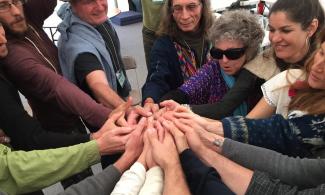
Once upon a time, the world was infinite. The edges of the map simply defined what was known, not all that was. Then it became common knowledge that the earth was round, and “the world” started to become something finite. When we were able to see the entire planet, from outer space, it really started to set in. This is it.
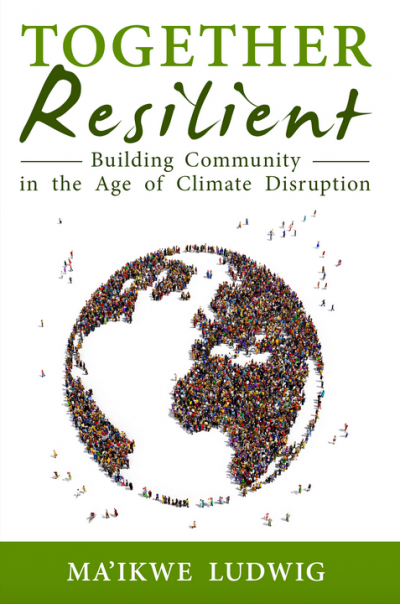
Intentional community is a kind of activism. People who create intentional communities do so because they see problems with the values and principles on which society is based and they want to create something better, and at least in some small way, they hope it will inspire others. But who says what’s better? Whatever it is, toxifying our environment, destabilizing ecosystems, and potentially making the planet uninhabitable for human life is part of what needs to change.
The only way this is going to change is if we work together, and in lots of different ways. That’s why the Fellowship for Intentional Community is publishing a new book, Together Resilient: Building Community in the Age of Climate Disruption, and sponsoring an accompanying speaking tour. We’ll be following up with a workbook, The Cooperative Culture Handbook. The last issue of Communities Magazine also focuses on this theme.
We need a diversity of tactics, including political activism and direct action. We also need to learn how to live and work together cooperatively, managing our shared lives and shared resources, in communities and as a global society, equitably and harmoniously. Part of our job at the FIC is to bring what’s being learned in intentional communities about resilience to climate change to a broader audience. That’s why we’re running our crowdfunding campaign to support these initiatives.
Indigenous peoples and utopian visionaries have been warning of the dangers of environmental destruction and depletion for a long time. But it’s taken a much longer time for humanity to recognize it as the existential threat it is. Despite an overwhelming scientific consensus and demonstrable impacts there is still resistance and denial. How can this be?
Certainly one reason is climate disruption has not caused enough economic disruption to sufficiently disrupt the lives of those with the most power (which may be changing; check out this article from the NYTimes about flooding and the real estate market). But it’s more than that. Climate change is terrifying. The factors at play are so monumental, the problems so complex, and the power to effect change on those levels is so beyond the reach of any one of us. Credible predictions about the kind of world we may be creating, one that many of us alive today will have to live through, are enough to make anyone panic. In short, we’re overwhelmed.
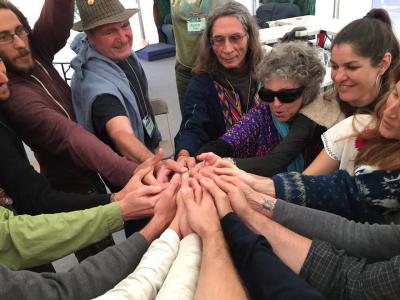
But most people no longer need convincing that there’s a problem, and more than ever people are looking for solutions. Intentional community is part of the solution.
When you’re around people and interact with them regularly, and when you have to make important economic decisions with them, you develop intimacy. It’s not always easy, but it builds our muscles for empathy and compassion, helping us make choices that are good for all people. This intimacy fills a hole that people usually fill with unsustainable consumerism. And it helps us deal with the overwhelm of being human in today’s world. This terrifying situation we find ourselves in, facing it together is our only hope.
Whether you’re an anti-capitalist or believe in capitalism 2.0, it’s clear that our current economic system reinforces the social and political systems that are destroying the planet. Guaranteeing that all people have access to the resources they need to meet their basic needs must be foundational. Intentional community provides a look at how we can take care of everyone, equitably and sustainably.
Intentional community shows us that we can live happy, satisfying lives with less. It shows us that, as the author of this book says, sustainability doesn’t have to suck. We’re afraid of poverty and deprivation. Sharing is the key. Sharing, on a material level as well as social, is the pathway to benefiting from the earth’s resources in a sustainable and enjoyable way.
A favorite quote amongst social activists comes from Margaret Mead: “Never doubt that a small group of thoughtful, committed citizens can change the world; indeed, it’s the only thing that ever has.” But here’s the rub: a small group of citizens doesn’t change the world. Lots of small groups of citizens change the world. Sure, maybe it starts with one group, but it doesn’t end there.
Collectively, humanity has the answers, we have the tools, we have the pieces of the puzzle. We just have to put them together.

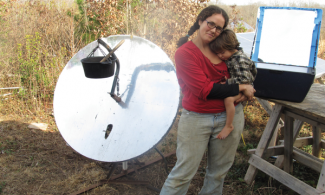
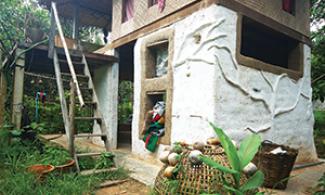
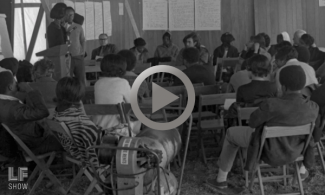
Add new comment